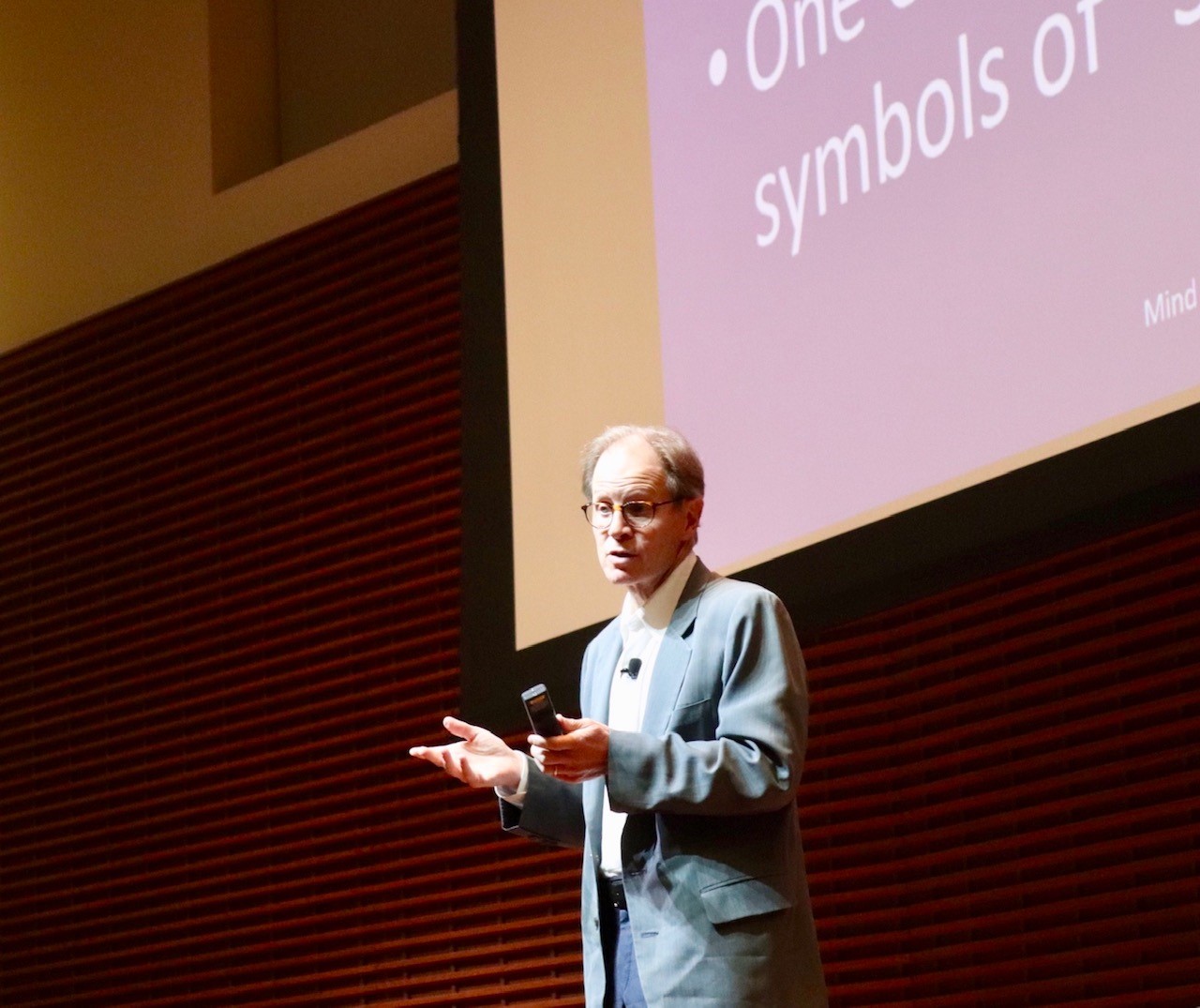The Contemplation by Design Summit is here with its 2019 chapter and features all manner of activities to help the Stanford community disengage from the relentless frenzied life on campus. Relaxation opportunities are offered through communal guided meditations, workshops and talks by faculty and external speakers. Events run from Oct. 29 through Nov. 7. All sessions are free and open to the public.
Friday evening, at a packed CEMEX auditorium, I attended the keynote speech by noted Psychiatrist Dan Siegel. His lecture, “Aware: The Science and Practice of Presence,” provided an introduction to the Wheel of Awareness, a tool that he advocates can be used for cultivating focus, presence in the ‘now’ and peace in our daily life. Dr. Siegel, a clinical professor of psychiatry at the UCLA School of Medicine, promotes the power of the principle “Where attention goes, neural firing flows and neural connection grows.”
Dr. Siegel’s interest in the questions around the integration of consciousness developed from his investigations in the fundamental definition of the concept of ‘mind.’ Failing to find satisfactory answers in psychiatry, behavioral sciences, sociology and anthropology as well as in neurosciences, Dan makes a proposal to explain the concept. While neuroscientists and psychologists view the mind as something within us, and sociologists offer an interpretation that sees it as existing between individuals, his conciliatory approach defines the ‘mind’ as an emergent phenomenon of energy flow and forms one of the core principles in interpersonal neurobiology.
The five senses, bodily sensations, cognition and mental activities and the overall interconnection of these form the components of the Wheel of Awareness and are the nuts and bolts of any efforts to integrate consciousness. The talk concluded with a guided contemplative meditation session followed by audience questions.
The summit continues across various Stanford locations until Nov. 7, concluding with a concert at Bing Concert Hall. Some of the major upcoming events include:
· Guided meditations including a session led by Dr. Tia Rich, PhD, Director, Contemplation by Design (CBD), who specializes in integrating reflection into resilience, stress management and professional/academic programs at Stanford University on Monday, Nov. 4.
· Meditation for Skeptics with Dan Harris on Tuesday, Nov. 5.
· Walking meditation and contemplation of memorial church with Rev. Joanne Sanders on Wednesday, Nov. 6.
· Contemplative concert in Bing Concert Hall on Thursday, Nov. 7.
More information on the summit including the full program is at the event website https://contemplation.stanford.edu.
Contact Anupriya Dwivedi at adwivedi ‘at’ stanford.edu.
